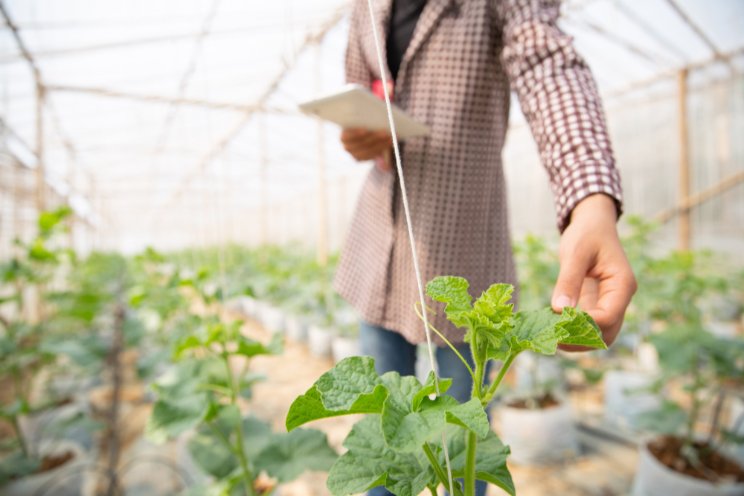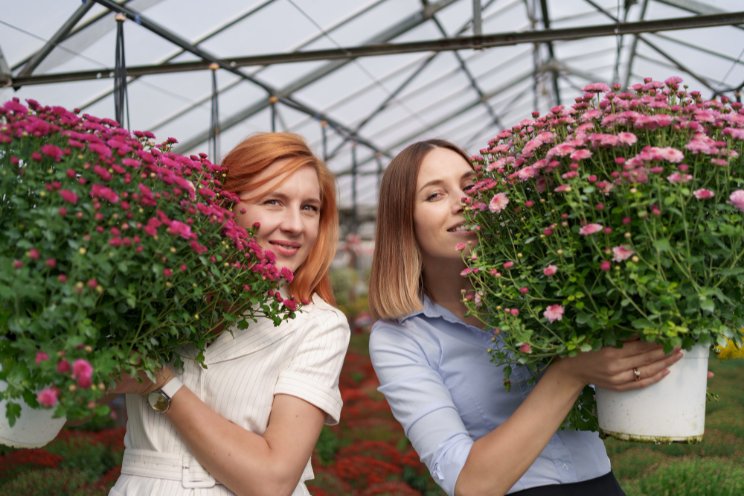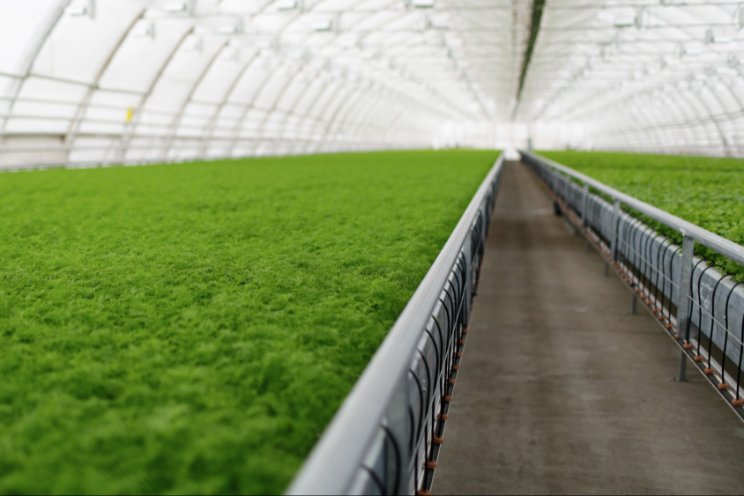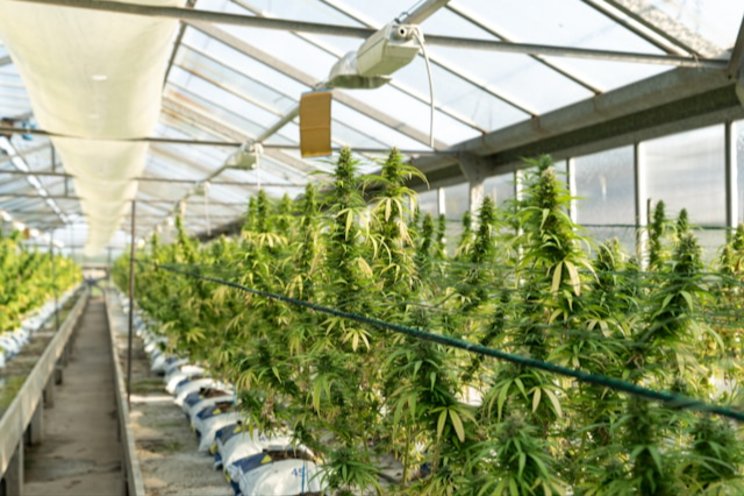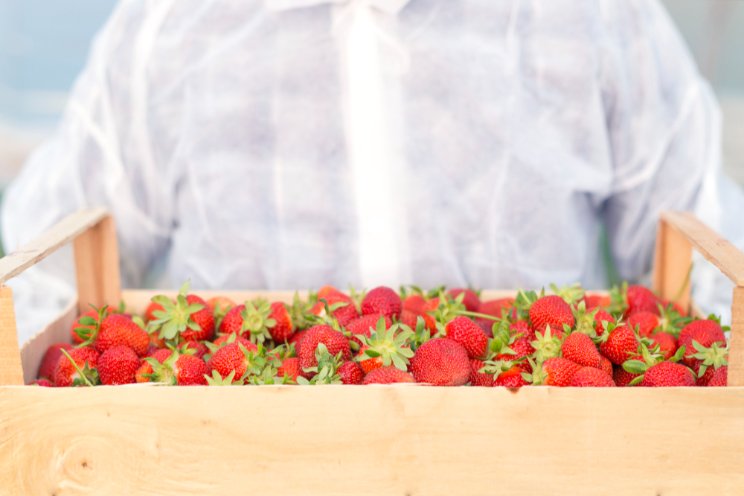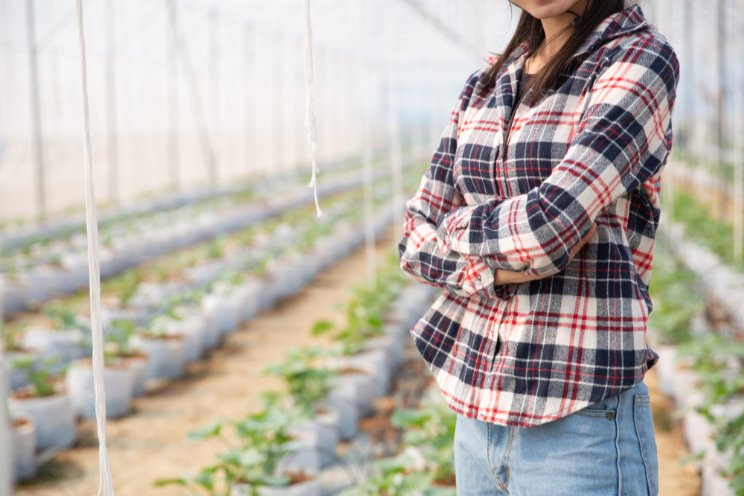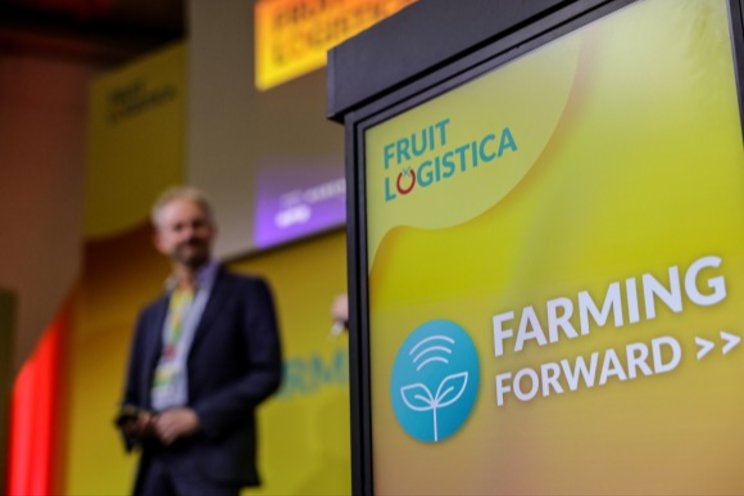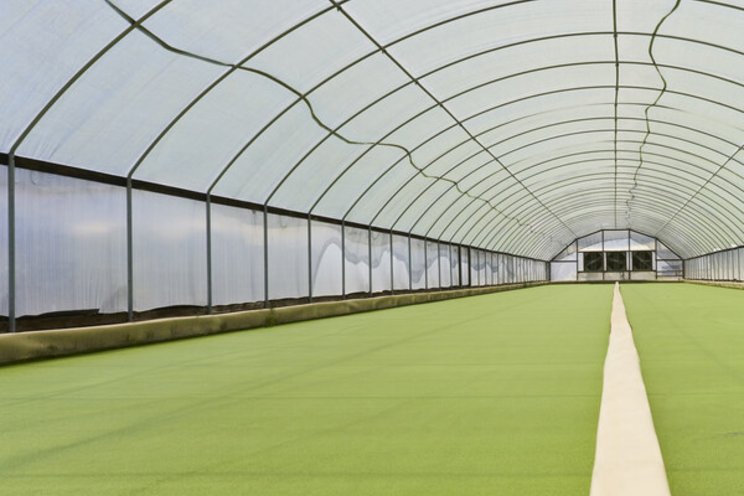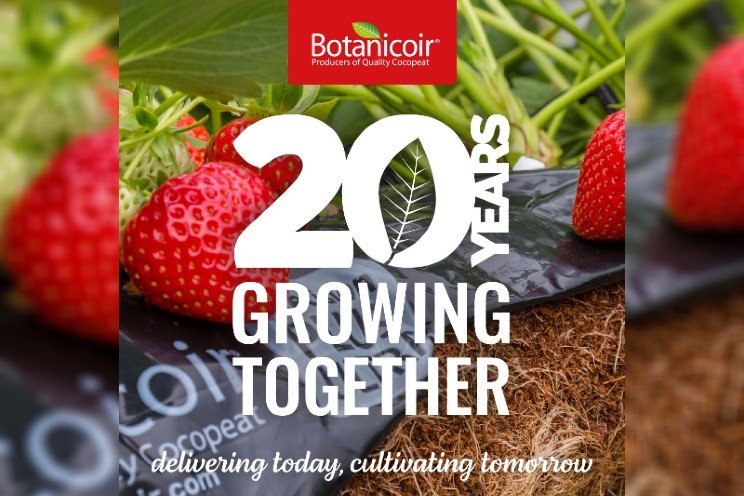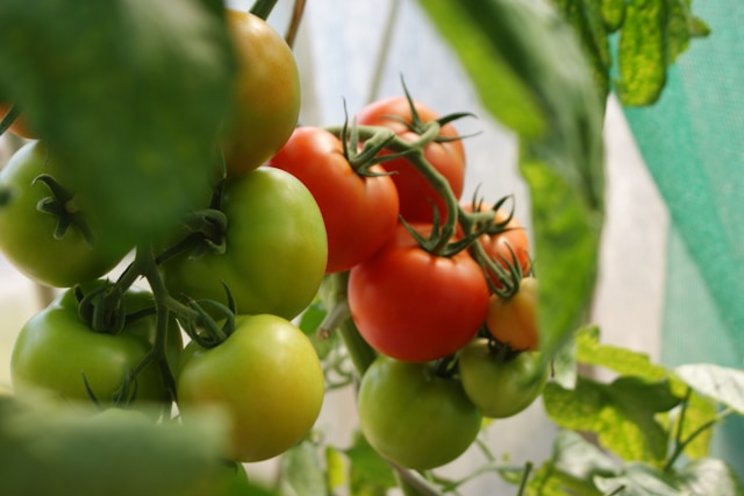Fresh starts and easy choices
Added on 07 September 2020
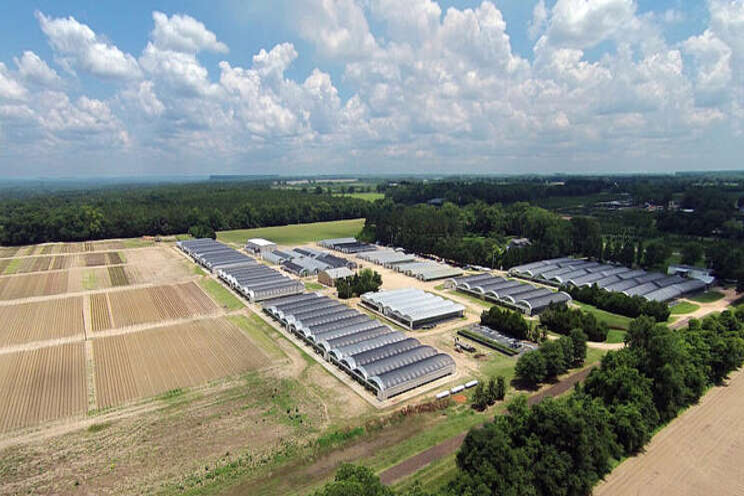
In 1991, longtime nurseryman David Babikow and his wife Wyona relocated from Lancaster, Pennsylvania, to Pensacola, Florida, to start a new venture producing ornamental grass liners. Their sons, Mark and Paul, and Paul's wife Maureen joined them and formed Emerald Coast Growers.
Having served the horticulture industry for generations, the Babikow family had decades of experience in growing plants. Their history begins in Baltimore, Maryland, in 1875 when David's grandfather built a nursery — which is actually still operating today.
EARLY BEGINNINGS AND EXPANSION
After living and working in Baltimore, the Babikow family eventually found its way to Lancaster, Pennsylvania, where David gained experience working at Green Leaf Enterprises. At the time, he was growing ornamental grasses in his backyard, according to son and current president Paul Babikow. "Work was always available to us, right in our backyard," he shares.
Cheri Markowitz, David's daughter and current sales manager, adds, "That's when we learned how to stick cuttings."

Founders David and Wyona Babikow in 1992
After 16 years with Green Leaf, the Babikows decided it was time to create something of their own.
"The ornamental grasses were really the catalyst that brought us down to Pensacola, Florida," says Paul. "Mark and I were interested in doing something together and wanted a location that was suitable for ornamental grass production."
The product that drove the company back in 1991 still drives it today. Paul says, "My father [David] loved grasses, but he had no idea of the impact they would have on the market."
"Later, additional family members joined the business and helped support this much-needed product niche," says Albert (Al) Mueller, CFO.
As the company expanded, it made sense for Emerald Coast Growers to add a northern location to its production and distribution. So, the company expanded into Lancaster, Pennsylvania, in 2003.
"Having a northern location puts the company in a position to be closer to distribution points, different customer markets and different weather," shares Al. "It gives us flexibility to be able to distribute product for customers who are in the Mid-Atlantic region, and they can also pick up product."
THE VALUE OF GRASSES
Ask anyone in the industry about Emerald Coast Growers, and the first thing that comes to mind is grasses.
According to Paul, ornamental grasses started the business and remain the backbone to Emerald Coast Growers' plant selections today. They produce grasses to suit a wide variety of landscape needs. Some are staples in the garden center, others are specialty grasses.

In recent years, the company has expanded its trial garden and R&D facility.
He says, "Ornamental grasses have developed from an interesting oddity into an expected element in good landscapes. There still remain grass varieties that interest us more than the public, but we try to stay the course of finding varieties that fit a market need. Some have become a commodity, others have a smaller niche to fill."
It is important for the company to stay on trend with its product offering. As customer demand and garden trends evolve, so does Emerald Coast Growers' product lineup.
According to Cheri, there are a couple of trends in the breeding of grasses. "One is infertility," she says. "Which refers to the sterility and reseeding capabilities. So many breeders are working on that. And we now have a line of infertile pennisetum and infertile miscanthus."
She says the other direction that breeders are taking is the ornamental value of natives. "In some different genus, such as andropogon and panicum, they are breeding to make these more of an ornamental value for the homeowners' gardens and for commercial landscaping."
Capturing this special and valuable niche in the industry certainly does not come without its own set of challenges. Labor has been and will probably always be a struggle for all growers, but with a specialty crop like grasses, it can be especially difficult.
"We're extremely labor heavy," says Paul. "Our production is not high tech with grasses; it's all very manual.
"It's not like doing seedlings of a very consistent universal crop. When you're dividing grasses, you are taking large clumps of grass, breaking them down, and each one is going to produce at a different rate and speed."
Cheri adds, "Growing grass is really just farming. You're growing in a field, transporting that product into a production house and having to divide it. And every grass divides a little bit differently. That's really where the labor is."
Paul adds that since grasses are protected by the USDA, they cannot be imported. "Unlike perennials, where you can buy in cuttings from off-shore locations, you cannot do that with grasses. So we have to do all of that here."
That being said, the company has made significant advances to improve efficiencies where possible. For instance, in 2014, they constructed a new soil-mixing facility at their Milton location to allow for easier custom blending by crop.

Emerald Coast Growers ships product throughout the entire U.S. as well as Canada.
And in 2017, Emerald Coast Growers added a seed house to increase control over inventory, sowing rates, germination percentages and growing conditions. The company even installed a monorail through the seed building that connects all areas to the connected seed greenhouse where seed trays are finished off before being sent out to ranges to be dibbled into trays.
INTRODUCING PERENNIALS
While grasses represent about 60% of Emerald Coast Growers' production, the remaining 40% comprises traditional perennial varieties.
Paul says that perennials were an easy evolution for the company, especially with his father's background at Green Leaf. Their perennial offering includes tried-and-true selections as well as many of the newer, innovative breeder introductions.
"We work with breeders around the world," says Al. "They are constantly coming up with new products with special interest. We're seen as one of the foremost growers that will trial and actually put some of these varieties in the market."

A new perennial growing facility was recently added to replace older structures and aid in efficiency.
Cheri says the breeding has to really be significant for it to replace what growers are already producing. "They express that opinion all the time that 'I'm not going to change what I'm doing just because you have the new and improved for that particular year.' It has really got to be a significant improvement."
Along those lines, Paul says that Emerald Coast Growers has recently expanded its research and development efforts by building a 12,000-square-foot R&D greenhouse. The company has also expanded its trial gardens in both Pennsylvania and Florida.
While the trial gardens are not necessarily display gardens, Al notes that the trials are intended for the breeders and ECG to observe growth and performance in their respective environments.
Customer Transparency
The goal and philosophy for Emerald Coast Growers has always been to "be the easy choice." The company's customer base spans all aspects of the industry, including landscapers, small mom and pop nurseries, garden centers, large-scale nurseries and greenhouse growers.
According to Cheri, Emerald Coast Growers has open availability that is sold on a "first come, first serve" basis. "It remains open to anyone who wants to see it, from brokers to direct customers. It is put out there daily, with our list pricing.
She says she believes this transparency has allowed them to gain in certain markets. "We speculate out 18 months. So I think that has really helped in our growth and also the distribution across the industry."
Emerald Coast Growers wants to have a plant available for anyone at any time, which is reasonably hard to achieve. But Cheri says they strive to have the plant material at any given time so any-sized grower can rely on them.
Al agrees, "Our availability is probably second to none as far as information and accuracy, and we make it easy. We like to say, 'We want to be the easy choice.' And I think that's what we do. I think when a customer has a need — especially in this climate where they didn't anticipate a need and now all of a sudden have one — we want to be that grower that they think of first."
Being a spec producer gave Emerald Coast Growers an advantage during the COVID-19 pandemic, says Paul.
"For a while, it was touch and go," says Al. The month of April brought a degree of uncertainty for many growers. But once spring hit and businesses began to open up, it went the opposite direction.
"Being a spec producer, we had plants available ready to roll when the push happened and the demand was there," said Paul.
Cheri adds, "As a liner producer, we ebb and flow with inventory levels out there. I think back in April, when inventory levels were higher, nobody knew what was going on. Fortunately, in May and June, inventory levels dropped because people were able to sell their material."
The Family Advantage
In the horticulture industry, we are surrounded by family-owned businesses — many of which have been in existence for multiple generations. For Emerald Coast Growers, the transition from David and Wyona to their children wasn't necessarily a formal process.
Paul says he and his siblings were always involved and it was a natural progression for them to take on ownership. Wyona has since passed away, and David is now retired — although he does still consult for the company.
Being a family business has given Emerald Coast Growers a strong connection with its customer base. Cheri says, "I don't know if it's necessarily unique, but I think we're seen as independent."
Part of the independence goes back to their open availability, and the trust it creates with customers. "You can go online and see what Emerald Coast Growers has every day," says Cheri. "That's really important to us, to have that visibility."
Al adds, "We're all one big horticultural family. When you look at our industry, it's almost all family businesses. As we look at our philosophy, we want to be family and treat people like family, and take care of our customers. As a result, we would be the easy choice."

Emerald Coast Growers At a Glance
- Year Founded: 1991
- Founders: David and Wyona Babikow
- Current Owners: Paul and Maureen Babikow, Mark Babikow, Cheri Markowitz, Bonnie Broussard and Albert Mueller
- Locations: Pensacola and Milton, Florida; and Lancaster, Pennsylvania
- Total Growing Space: 500,000 square feet
- Key Management: Paul Babikow, president and CEO; Cheri Markowitz, sales manager; Bonnie Broussard, accounts payable manager; Maureen Babikow, payroll manager; Albert Mueller, CFO
- Number of employees: 100 to 150
- Product Offering: Starter plants for 175 varieties of ornamental grasses and 500 varieties of perennials
- Website: www.ecgrowers.com
Source and Photo Courtesy of Greenhouse Product News
Source: Greenhouse Product News
More news
